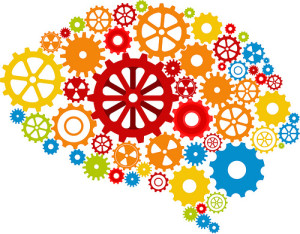I had my mind opened wide on Tuesday this week. It’s always fun, exciting and confusing to come across a new idea or way of thinking and totally changes your current perspectives.
Perspectives
Often as a learning technologist there is a tension between enabling your colleagues to develop content and ideas themselves, working in tandem and using your more specialised technical or pedagogical knowledge to do work on their behalf.
When thinking about enabling confidence with using new technologies or providing recommendations for use in education it leads onto thinking about skills and knowledge development. This can apply equally to students as to academic staff.
One of the debates which has been raging for a few years is around the notion of a gap between the innate skills of younger people ‘digital natives’ and those who were around in an era when there was less technology about ‘digital immigrants’ (i.e. staff / academics / teachers) .
I’ve always been uncomfortable with this notion as it assumes that:
- There is a point at which new digital technology has sprung into life and altered society so much. I view this as a simplification – technology has been modifying our society for hundreds of years – it’s just more document-able, visible and fast-paced.
- People don’t adapt and that somehow you have to be born into an era to be using it in a consummate way.
- It’s divisive suggesting an age-related barrier to technology. (The largest demographic of growth of users on the Internet is now the ‘silver surfers’ 50+)
The event on Tuesday at The University of Leeds entitled “Visitors and Residents: What do students really get up to online and why should we care?” which was by David White, University of Oxford who put forward the idea that it was all about how we engaged and used new technology and services that could be defined.
Digital Visitors and Digital Residents versus Immigrants and Natives
It was this new idea that opened my mind, and addressed the dissatisfaction I’d been feeling about the concept of immigrants and natives.
Essentially, digital visitors are those that use a technology, and when they are not using it no presence or engagement is left. Use is perhaps ad-hoc. Work e-mail could be an example – when you’re not deleting, writing and responding to e-mails nothing remains until you fire it up the next day and start interacting.
FaceBook, on the otherhand with photo albums and comments represents you when you are not using it – a part of you is now ‘resident’ online as part of that technology.
What is not real?
David White also articulated very well dissatisfaction with another concept that had been bugging me – the idea of real and non-real interactions. This was tied with social normalisation of technology. Often people claim the interactions on FaceBook or other technology are not real – their point of reference being they are not physically here. However, it doesn’t make sense anymore to think of a telephone call to your parent(s) as not real – even though you are not physically right next to them when speaking.
Maybe this will change throughout society for newer technologies such as FaceBook – but it would certainly seem for those that engage with technology as a ‘resident’ that this is not even an issue anymore – it is real – just taking place in a new context.
Mapping use of technology
Through the latter section of the session there was a focus on mapping the technology people used and understanding how both ourselves and students may engage with different technology.
This was also very revealing and also provided me with a clear way to address another question I’d been thinking about:
Students are often assumed to be good with technology because they are residents in one or more ways (use of Twitter, FaceBook, etc). But, this does not mean that they would be able to use technology effectively for self-education any more or less than anyone else.
Summary thoughts and further questions
- The more you think about something the more there is to know… so lots of questions and things to think about…
- I think I have experienced and found a great new way to think about technology approaches to its use in education and society from a individual human-centered perspective (banishing the digital natives concept – this could now be considered just a ‘what I experience when I grow up’ phenomenon which makes generations distinct)
- Helps highlights the BIG questions which taking part in #ocTEL and impending dissertation is making me think about:
- Changes in society affecting education
- How to enable confidence and skills development in students and academics
- Tensions between doing and enabling within the role of a learning technologist
- Undoubtably there are many points and ideas raised during the session which are not covered here but covered elsewhere – everyone’s interpretation / memory is different:
Further Project and People Links
- Visitors and Residents Project Page
- Visitors and Residents Published Paper
- David White’s Blog and Homepage
- Another write-up of the event is by: Alice Shepard and on the Talking about Teaching SDDU web-page
